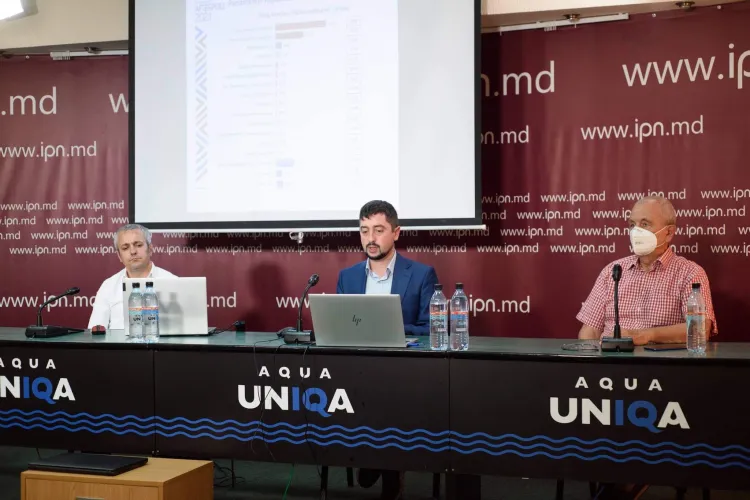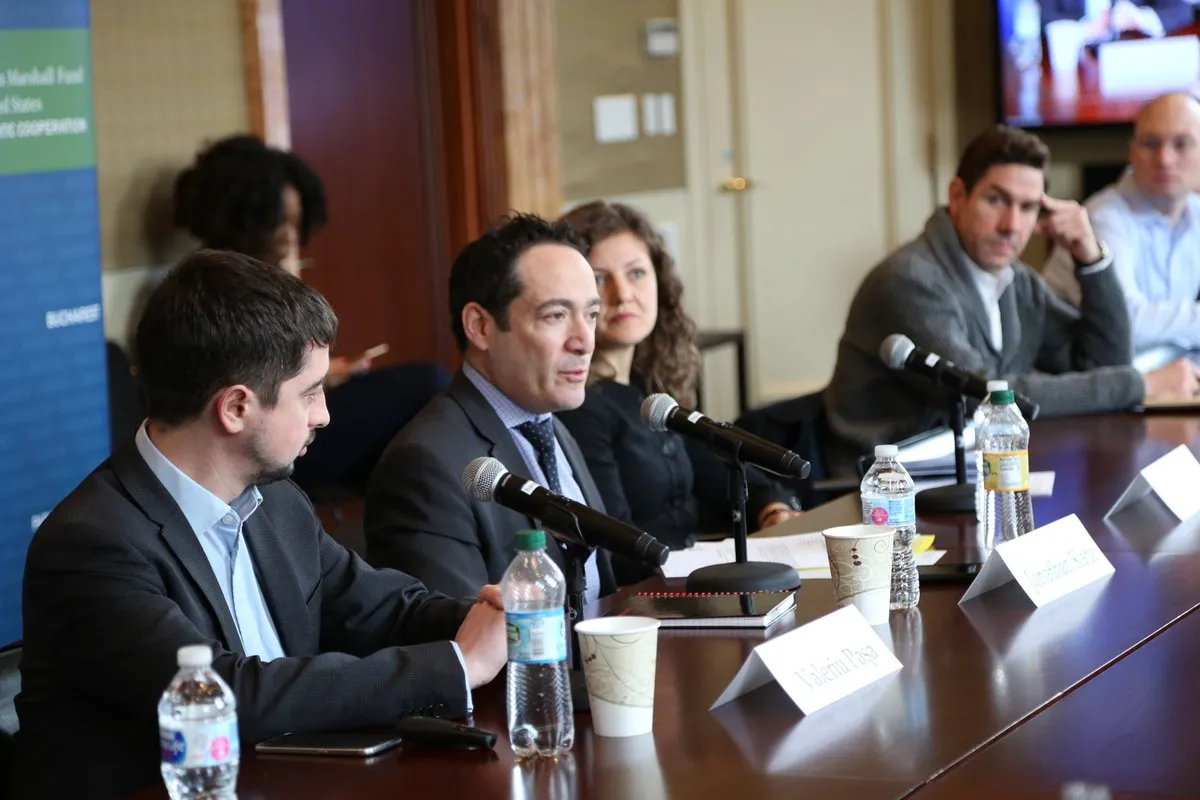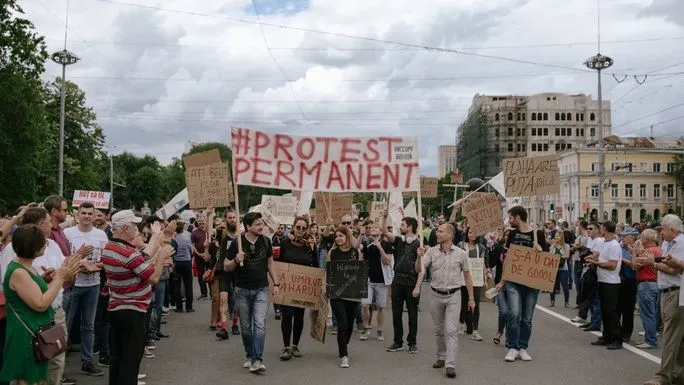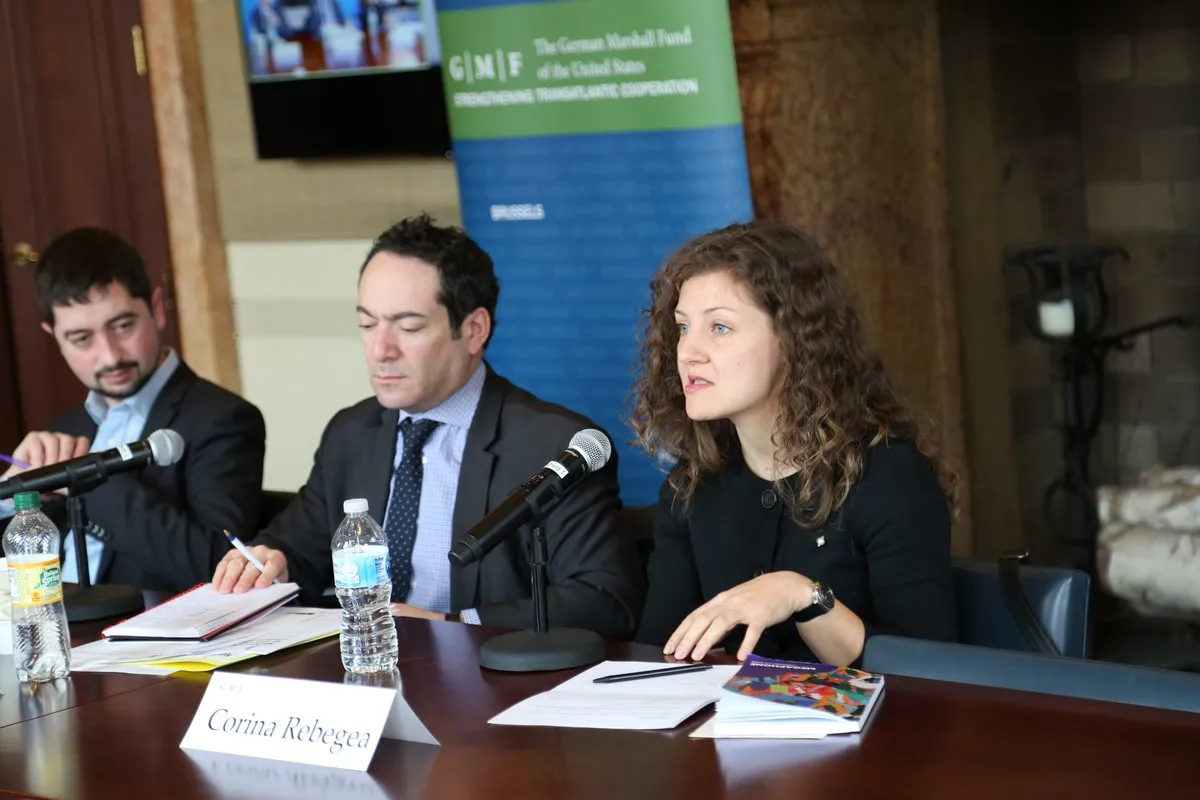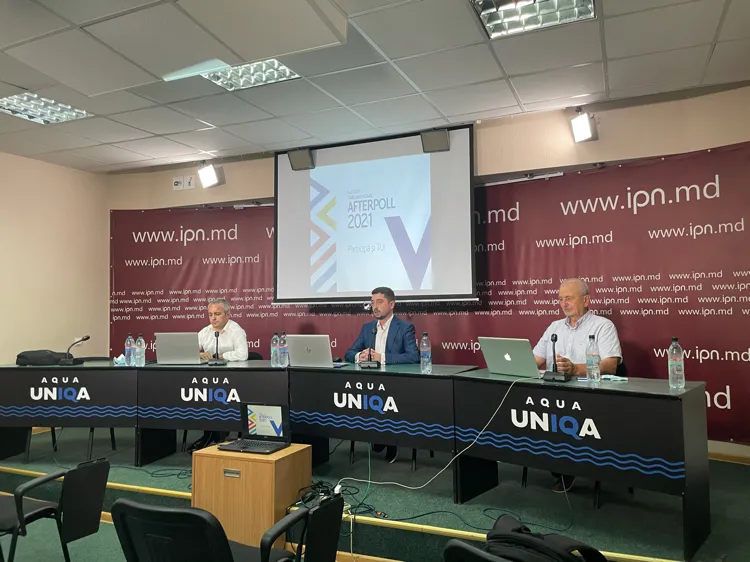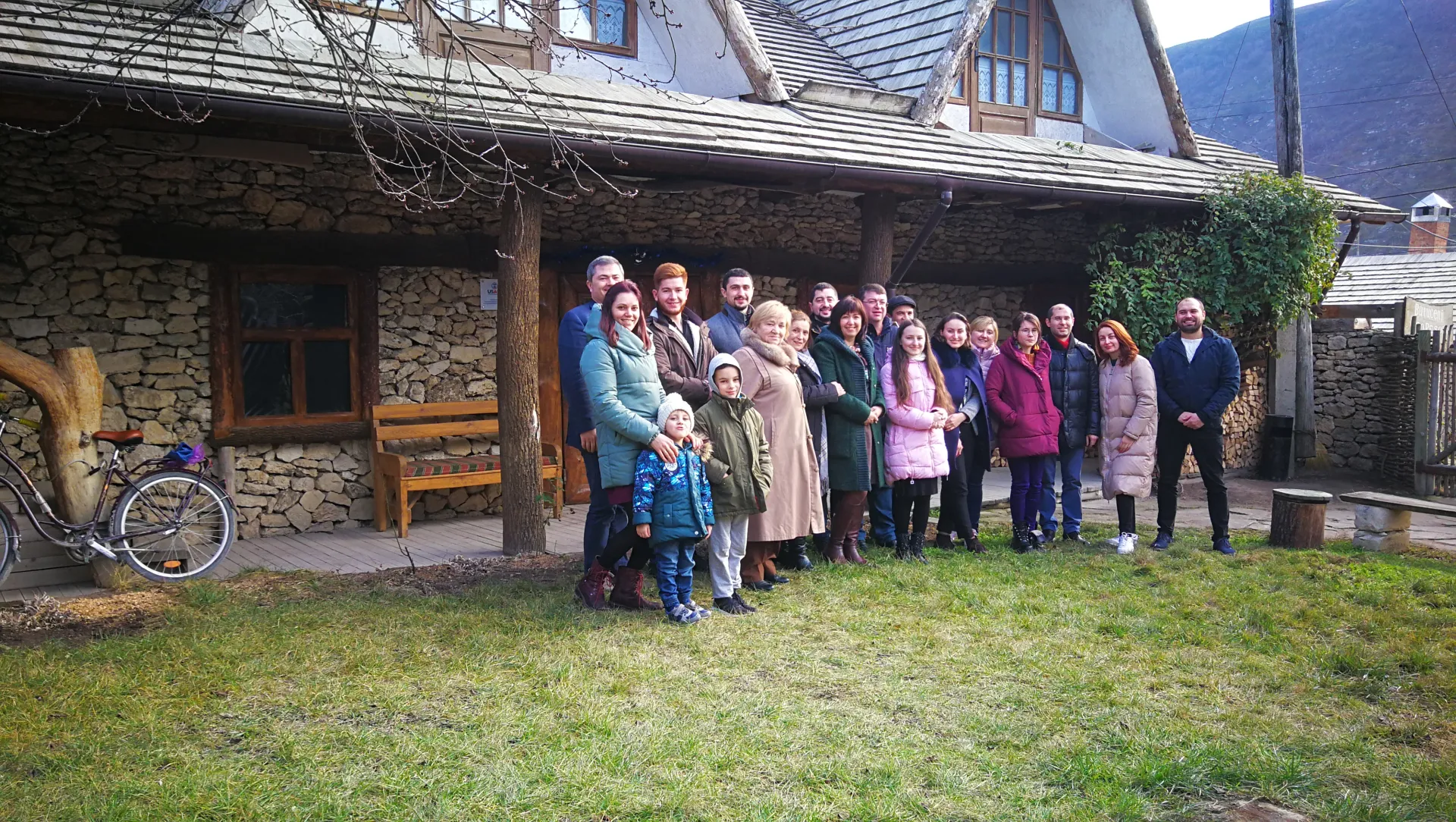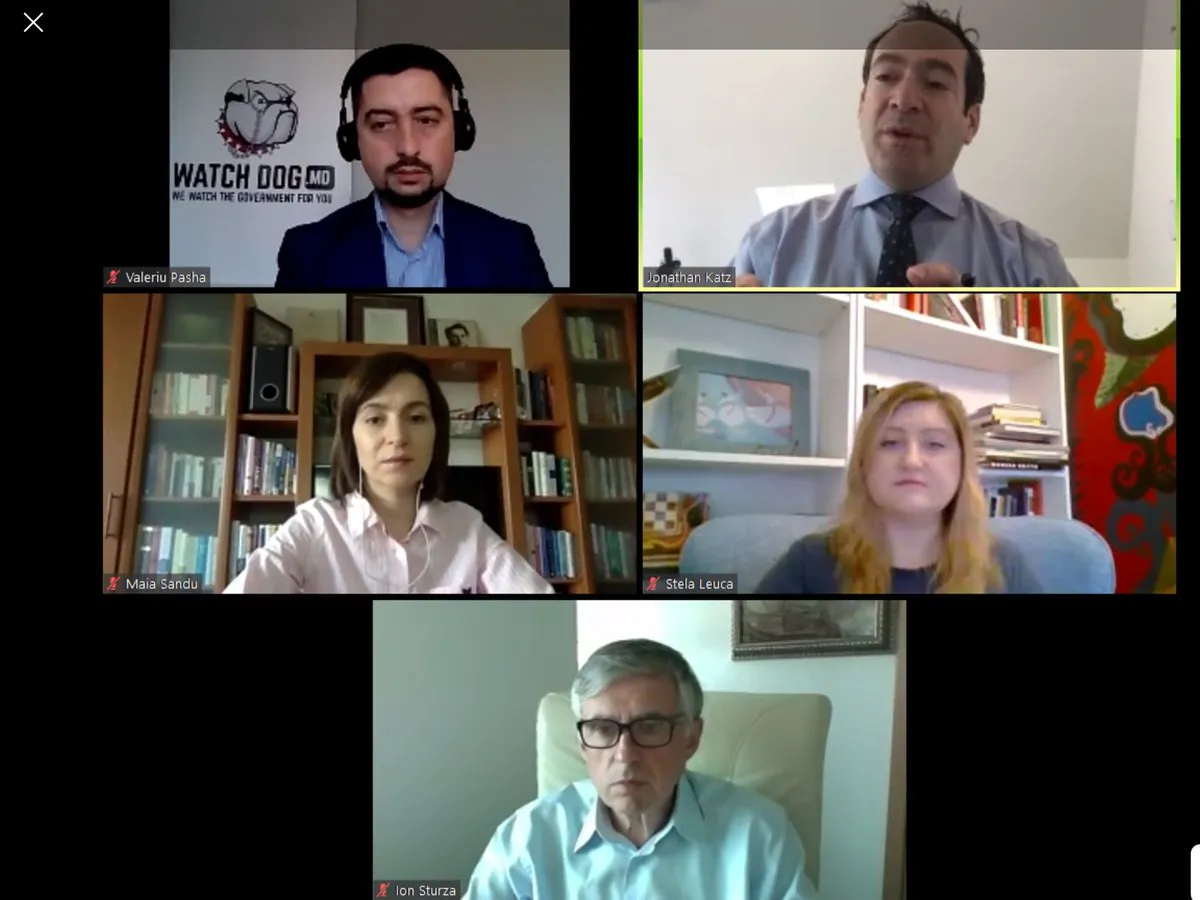Shifting to New Ways of Reinforcing Civil Society in Moldova
The German Marshall Fund’s Black Sea Trust is committed to strengthening civil society and supporting democratic foundations in the Black Sea region. One of the projects it funds is Community WatchDog.md, which has been monitoring disinformation and corruption in Moldova since 2017. Over the years, it has uncovered several disinformation campaigns and misdeeds by the country’s rulers. However, the new government is attempting to reform the country and build closer ties with the European Union, prompting a shift in how WatchDog.md works.
When Valeriu Pașa and his colleagues from Community WatchDog.md traveled to Washington in 2017 to talk about the situation in their home country, the Moldovan government was not happy.
Before the trip, their email accounts were hacked. Was the aim to find sensitive information about an event they planned to attend? The details were all public.
Once in the United States, two members of a lobby group sponsored by Moldova’s government followed them from meeting to meeting, disputing everything the WatchDog.md representatives had to say about corruption in the country.
“They very quickly sent them after us. They tried to find all our meetings and they were coming after us, to present another opinion,” Pașa says, chuckling at the absurdity of the situation. “If they are so worried, then we’re doing the right thing.”
WatchDog.md’s work has often drawn reprisal and pressure. The organization was repeatedly the target of disinformation campaigns and criminal investigations into unfounded allegations such as money laundering. At some point, some of its members’ personal devices were being monitored.
“It was like a sign of the quality of our work,” Pașa says. “If we release a new report or analysis and we don’t receive any of these attacks, it means that it is not impactful.”
Combating Disinformation and Corruption
Pașa and his colleagues launched WatchDog.md in 2017, shortly after the 2016 presidential election. At the time, they saw a need to create a platform to counter the kleptocratic and autocratic regime of Vlad Plahotniuc, oligarch and former chief of Moldova’s Democratic Party. Since then, WatchDog.md has published investigations and policy analyses, organized protests, and in 2018 even attempted to assemble a national legislative referendum.
Moldova’s 2020 presidential election marked a major turning point in the country’s politics. For the second time, Maia Sandu, the leader and founder of the Moldovan Party of Action and Solidarity (PAS), was running for office, taking a strong pro-European stance and promising democratic reforms to fight corruption and poverty in the country.
The popularity of Sandu and the PAS caused unrest among the country’s kleptocratic elites, who wore different populist masks—pro-Russian, nationalist, socialist, conservative, or anti-Russian—but, in the end, were often on the same side.
These opponents sought to undermine Sandu’s campaign with disinformation. WatchDog.md analyzed these narratives as they spread throughout social media and Moldova’s mainstream media. The disinformation was broad ranging, from gender discrimination to elaborate conspiracy theories about NATO, George Soros’ influence, an alleged “world government,” and shady Western funding for the opposition, or fake stories about the sale of agricultural land, a war with Russia, and, if Sandu won, the legalization of gay marriage.
Much of this disinformation promoted artificial debates: old values and religion versus new ideas, unification with Romania versus independence, the West versus Russia. According to Pașa, this often served as a smokescreen to avoid a serious discussion about corruption. To him, “the real separation of political actors during the elections was being on the side of corruption or on the side of anti-corruption.”
Engaging Moldovans Abroad
One unusual aspect of Moldovan elections is that over a third of its citizens live outside the country. WatchDog.md informed diaspora communities about the elections and their right to vote by using social media to share information about the main candidates and issues, along with details on how to vote, which documents were necessary, and how to get to the nearest polling station.
The pandemic worked in the organization’s favor, Pașa says. “The lockdowns helped us a lot because people were spending a lot of time in the house, staying on social media, which increased the audiences.” In addition, the authorities in many European countries allowed Moldovans to leave their homes on election day to vote.
Voting by the Moldovan diaspora community rose dramatically, from 120,000 in 2016 to around 230,000 in 2020. When elections came, “some people were traveling half a day with the car or by plane from one country to another in order to express their vote,” Pașa says.
In the second round of the presidential election, more than 14% of all votes came from Moldovans living abroad, making them a decisive segment of the electorate.
In the second round of the presidential election, more than 14% of all votes came from Moldovans living abroad, making them a decisive segment of the electorate.
New Government, Old Issues
Though her 2016 presidential campaign failed, Sandu narrowly defeated Russian-backed opponent Igor Dodon in 2020 to become Moldova’s first female president. This success was followed by a landslide victory for the PAS in the parliamentary elections and Sandu’s appointment of U.S.-educated economist Natalia Gavrilița as prime minister.
WatchDog.md played an important role in these achievements, pulling back the curtains to show voters the truth behind the disinformation narratives. However, its work is far from done.
Expectations for the new government are high, but major reforms are still a long way off and it faces numerous overlapping crises.
The country’s coronavirus vaccination rate is far below the European average, while inflation and rising energy prices are hitting the economy hard. Meanwhile, Russia’s Gazprom cut off part of its gas supply to Moldova, forcing the country to ask the EU for help.
These challenges are exacerbated by Moldovan and foreign actors who oppose the renewal of the country. Russia’s campaign to discredit the new government has been unrelenting. Many Russian-backed media outlets sow distrust of a pro-West orientation, democratic reforms, and liberal values.
The same applies to the old elites that previously governed the country and fear that anti-corruption measures and reforms could stir up trouble for them. “They already started to use their illegal wealth to fund disinformation against the new government, especially regarding the reforms and fight against corruption,” Pașa says. “For example, there is a popular narrative that the whole anti-corruption story is just a Soros invention and is, in fact, part of a plan to turn the country into something like a foreign colony.”
New Paths for WatchDog.md
While WatchDog.md’s mission remains the same—to strengthen the resilience of Moldovan society, to fight disinformation, and to expose collusion among kleptocratic groups—its work will change as a result of the new government.
Pașa’s team now has open lines of communication with the Presidential Administration but continues to publicly apply pressure on the government to make it understand that a large part of society is eager for democratic reforms.
WatchDog.md’s role now is to hold the government to its promises and standards. Pașa says: “We need to remain very tough and critical, while at the same time to really help them to do the right things.”
However, the new government is very popular, and therefore tough to criticize. Often, its supporters who previously approved of WatchDog.md’s work now object.
“To obtain conditions where we can develop something”
Moldova might change dramatically in the coming years. But right now, Pașa observes, it does not have the human capacity to build a professional and efficient state structure very quickly. More than half of the country’s 20- to 30-year-olds, especially those who are educated and might be expected to seek careers in government, have emigrated.
The future of the country will also depend on how the new government deals with corruption within its own ranks. “They need to punish the previous kleptocrats, but it is even more important how they will deal with the new,” Pașa states. “If they will have the temptation to protect their colleagues only because they have the same party, then we are done with the reform of justice and anti-corruption and it will never work.”
While Pașa is realistic about the situation in Moldova, he sees positive developments. “I think that if we at least maintain the current situation with the government, we will continue to achieve the necessary changes step by step. Maybe in five to six years, Moldova can become a much better candidate for joining the EU."
